Filter by
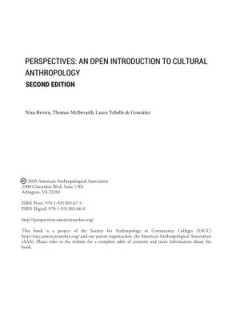
PERSPECTIVES: An Open Introduction To Cultural Anthropology
This textbook is a collection of chapters on the essential topics in cultural anthropology. Different from other introductory textbooks, this book is an edited volume with each chapter written by a different author. Each author has written from their experiences working as an anthropologist and that personal touch makes for an accessible introduction to cultural anthropology. The authors' appro…
- Edition
- -
- ISBN/ISSN
- 9781931303668
- Collation
- -
- Series Title
- -
- Call Number
- 301 BRO p
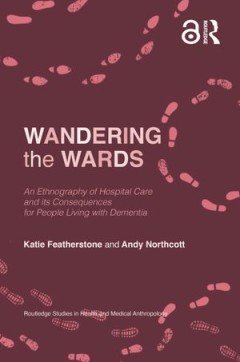
Wandering the Wards: An Ethnography of Hospital Care and its Consequences for…
Wandering the Wards provides a detailed and unflinching ethnographic examination of life within the contemporary hospital. It reveals the institutional and ward cultures that inform the organisation and delivery of everyday care for one of the largest populations within them: people living with dementia who require urgent unscheduled hospital care. Drawing on five years of research embedded in …
- Edition
- -
- ISBN/ISSN
- 9781000185416
- Collation
- -
- Series Title
- -
- Call Number
- 301 FEA e
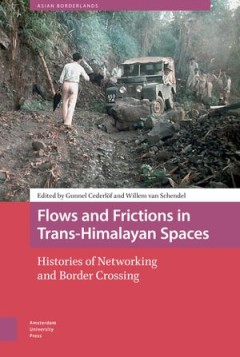
Flows and Frictions in Trans-Himalayan Spaces Histories of Networking and Bo…
Flows and Frictions in Trans-Himalayan Spaces traces movements and connections in a region known for its formidable obstacles to mobility. Eight original essays and a conceptual introduction engage with questions of networks and interconnection between people across a bordered landscape. Mobility among the extremely varied ecologies of south-western China, Myanmar and north-eastern India, with …
- Edition
- -
- ISBN/ISSN
- 9789048555581
- Collation
- -
- Series Title
- -
- Call Number
- -
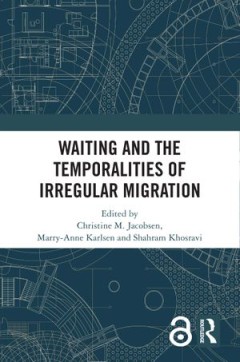
Waiting and the Temporalities of Irregular Migration
This edited volume approaches waiting both as a social phenomenon that proliferates in irregularised forms of migration and as an analytical perspective on migration processes and practices. Waiting as an analytical perspective offers new insights into the complex and shifting nature of processes of bordering, belonging, state power, exclusion and inclusion, and social relations in irregular…
- Edition
- -
- ISBN/ISSN
- 9781000225259
- Collation
- -
- Series Title
- -
- Call Number
- 304.8 KAR w
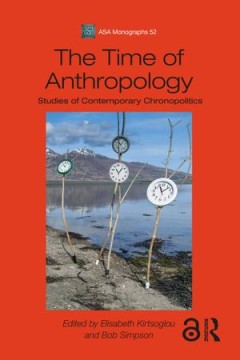
The Time of Anthropology: Studies of Contemporary Chronopolitics
The Time of Anthropology provides a series of compelling anthropological case studies that explore the different temporalities at play in the scientific discourses, governmental techniques and policy practices through which modern life is shaped. Together they constitute a novel analysis of contemporary chronopolitics. The contributions focus on state power, citizenship, and ecologies of time t…
- Edition
- -
- ISBN/ISSN
- 9781000185805
- Collation
- -
- Series Title
- -
- Call Number
- 301 TIM t
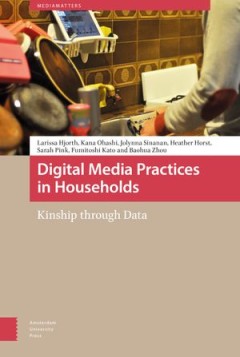
Digital Media Practices in Households Kinship through Data
How are intergenerational relationships playing out in the digital rhythms of the household? Through extensive fieldwork in Tokyo, Shanghai and Melbourne, this book ethnographically explores how households are being understood, articulated and defined by digital media practices. It explores the rise of self-tracking, quantified self and informal practices of care at distance as part of contempo…
- Edition
- -
- ISBN/ISSN
- 9789048542062
- Collation
- -
- Series Title
- -
- Call Number
- -
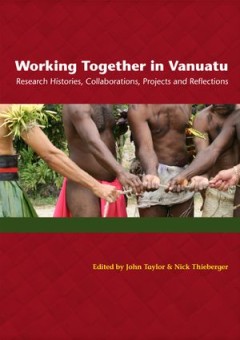
Working Together in Vanuatu Research Histories, Collaborations, Projects and…
This collection is derived from a conference held at the Vanuatu National Museum and Cultural Centre (VCC) that brought together a large gathering of foreign and indigenous researchers to discuss diverse perspectives relating to the unique program of social, political and historical research and management that has been fostered in that island nation. While not diminishing the importance of ind…
- Edition
- -
- ISBN/ISSN
- 9781921862359
- Collation
- -
- Series Title
- -
- Call Number
- -
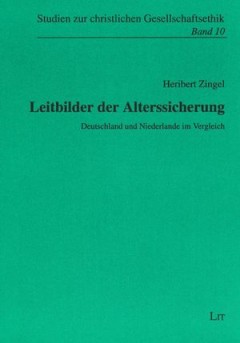
Leitbilder der Alterssicherung : Deutschland und Niederlande im Vergleich
Der gegenwärtige Diskurs um den Umbau des Sozialstaates wird von Finanzierungs- und Leistungsaspekten dominiert. Fragen der Prinzipien, nach denen die Sicherungssysteme gestaltet sind oder gestaltet werden sollen, treten demgegenüber meist in den Hintergrund. Die vorliegende Studie versucht hier eine Lücke zu schließen: An historischem Material - von der Konstitution bis zur großen Reform …
- Edition
- -
- ISBN/ISSN
- 9783825897222
- Collation
- -
- Series Title
- -
- Call Number
- -
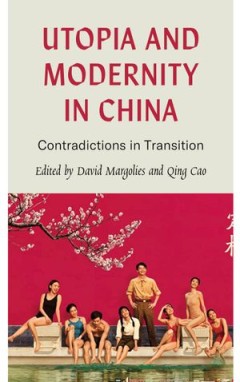
Utopia and Modernity in China : Contradictions in Transition
The contradictions of modernisation run through the whole of modern Chinese history. The abundance of manufactured goods being sold in the west attests to China’s industrial revolution, but this capitalist vision of 'utopia' sits uneasily with traditional Chinese values. It is also in conflict with the socialism that has been the bedrock of Chinese society since the foundation of the People�…
- Edition
- -
- ISBN/ISSN
- 9781786808349
- Collation
- -
- Series Title
- -
- Call Number
- -
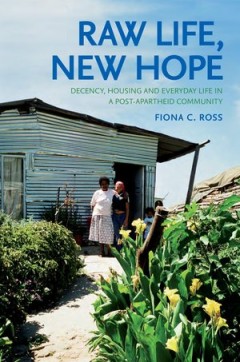
Raw Life, New Hope : Decency, Housing and Everyday Life in a Post-Apartheid C…
The Cape Flats, a windswept, barren and sandy area which rings Cape Town, is home to more than a million people. Many live here in sprawling shack settlements. The post-apartheid state is attempting to eradicate such settlements by providing formal houses in planned residential estates. Raw Life, New Hope is a longitudinal study of the residents of one such shack settlement, The Park, who moved…
- Edition
- -
- ISBN/ISSN
- 9781919895277
- Collation
- -
- Series Title
- -
- Call Number
- -
 Computer Science, Information & General Works
Computer Science, Information & General Works  Philosophy & Psychology
Philosophy & Psychology  Religion
Religion  Social Sciences
Social Sciences  Language
Language  Pure Science
Pure Science  Applied Sciences
Applied Sciences  Art & Recreation
Art & Recreation  Literature
Literature  History & Geography
History & Geography